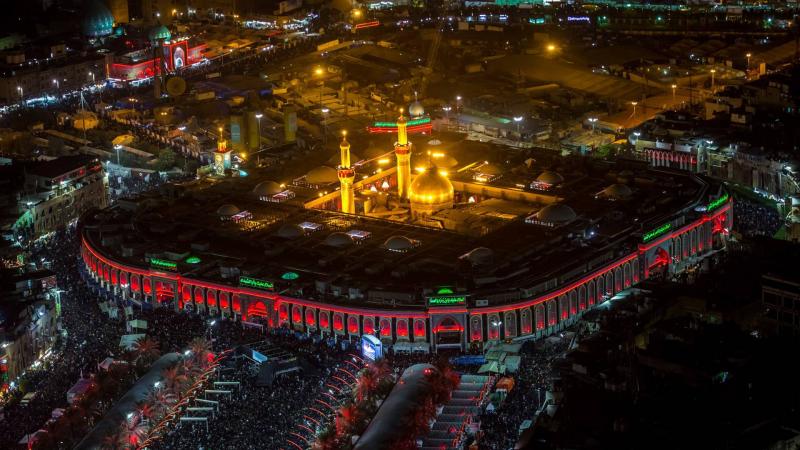The rituals associated with the occasion of "Ashura" have increasingly transformed into superstition, evolving year after year, fueled by mobilization from within Iraq and across Arab and African regions. What is happening is not innocent; it comes from a mindset that cultivates ignorance while gradually isolating Shiites from their homelands, effectively replacing community with sect. Today's events were warned against by the "Ikhwan al-Safa," who cautioned about instilling a sense of revenge in generations who have no connection to past events (Our article: Ashura... The Opinion of Ikhwan al-Safa, Middle East, 16/1/2008). In other words, what happened in Karbala (61 AH) was being remembered, and "Ikhwan al-Safa" wrote about it in the fourth century AH, until the Safavid period, which introduced the Hussaini mourning gatherings for political reasons, as "They commanded the narrators to recite the tragedy of the Master of Martyrs." Among the first to prohibit its enactment was the jurist Jaafar Khashif al-Ghita (d. 1812), and many prominent scholars revealed the trivialization added to it, unhesitatingly referring to these practices as a "store" (Nouri – d. 1912 – "Pearls and Corals in the Etiquette of the People of the Pulpit"; Mohsen Amin – d. 1954 – "Epistle of Similarity"; Murtada Motahhari – assassinated: 1979 – “The Hussaini Epic”).
Such writings appeared before the outrageous practices, which the Shiites were not familiar with in previous times. These outrageous acts are deliberately perpetuated by authorities keen on undermining reason among the Shiite youth, aiming to establish a sectarian, virtual homeland under their leadership. It is well-known that the interests of Shiites lie within their own countries, not outside them. These practices present Shiites as existing outside history, which is not the case before the dominance of extremists, many of whom are declared infidels by various Shiite religious authorities.
If we look back to the pre-Safavid era (1501-1740), there was a strong inclination toward thought, literature, and debate. In the classification of "The Index to Shiite Writings" (25 volumes) by Sheikh Agha Bozorg Tehrani (d. 1970), one can find ample evidence for differentiation between the previous and current situation. The "Index" was compiled when George Zaidan (d. 1914) published "The Etiquette of the Arabic Language," where he only mentioned a few works by Shiites. According to the words of Tehrani's son, Ali Naqi al-Manzawi (Haddad, "Encyclopedia of Islam"), his father spent forty years producing the index in response to Zaidan's work, and indeed it contains various types of thought, jurisprudence, literature, and philosophy, amounting to 53,510 books, both original and translated, relying on indexes like "Tusi's Index" and "Najashi's Index."
However, if one were to inquire today about the content of "Al-Dhari'a," they would find little trace of it, compared to the fame of certain reciters who amassed huge wealth from spreading sectarian culture and ignorance, or from charlatans and foul-mouthed individuals honored by political parties and organizations. If a reciter sees a minister or officer standing before him beating his chest, he is entitled to ignore reason altogether.
Where are these visible and hidden forces taking the youth of Iraq, and what will the continuation of these rituals inherit regarding animosity that threatens social security? The country has been deeply penetrated by superstition, and it is not the time for pulpits to gather hundreds at most; today, if someone sneezes, it can be heard all the way to China in an instant. The frenzy of superstition is moving toward capitals, and because it is presented through religion and sect, sectarian tensions arise that other countries view as a threat to their social security.
No one wants to prevent Ashura; the appeal is for it to be regulated. We must not grant absolute freedom to merchants of ignorance, leading to practices of "madness," dubbed "The Madmen of Hussein." There have been instances where individuals storm a Sunni mosque to prevent its preacher from holding Friday prayers, simply because it is Ashura. The occurrences of these rituals are being transmitted in audio and video, portraying the people of Iraq as masters of regression in its lowest forms, not to mention the complete paralysis of the state for weeks.
Will Iraq decide, in line with what Iran determined (1995), and no one else, as stated by their leader at the time, disallowing practices and saying: "The Shiites appear as if they are living in an illusion and do not give reason any importance” (Husseini, “The Revolution of Purification,” 1996)? I ask: Can the concept of illusion withstand the continuous perpetuation of superstition, or is there a deeper illusion beyond this illusion?!




